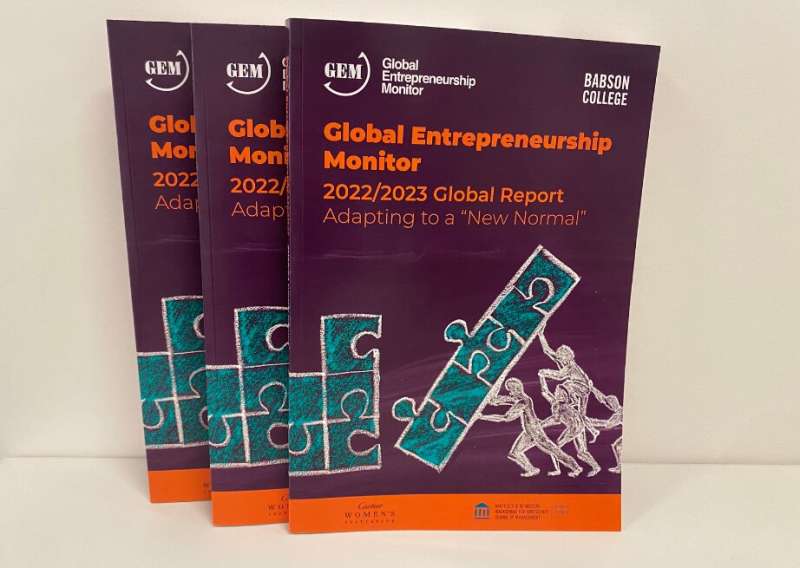Impact of the pandemic on entrepreneurship worldwide is ‘mixed’

The impact of the pandemic on global entrepreneurship has varied across economies, according to a new survey.
The Global Entrepreneurship Monitor tracks the percentage of adults who are starting or running a new business—referred to as “Total early-stage Entrepreneurial Activity” (TEA).
Based on interviews with more than 175,000 individuals and experts from 51 economies, the latest report shows countries have experienced variable impacts from the pandemic. Twelve of the 38 economies which took part in GEM’s Adult Population Survey (APS) both pre-pandemic in 2019 and post-pandemic in 2022, report a substantially higher level of TEA in 2022 compared to pre-pandemic, and 16 in which TEA levels fell dramatically. In 10 of those economies, there was minimal change.
Entrepreneurial perceptions
The pandemic’s impact on entrepreneurial perceptions has also been highly varied. There were 12 economies in which the percentage of adults seeing good local opportunities to start a business fell by five points or more, while that percentage increased by more than five points in nine economies.
One explanation for these differences may be the level of support that governments were willing—and able—to offer to businesses and households during the pandemic.
Sreevas Sahasranamam, one of the co-authors of this report and Associate Professor in Entrepreneurship & Innovation at Strathclyde Business School in Glasgow, U.K. said, “We observe that fear of failure is a serious constraint on business start-ups in many economies from all income groups. In a number of economies, high proportions of adults agree that starting a business is relatively easy, and see good opportunities to start a business locally. However, around half of those seeing such opportunities are nevertheless deterred from taking action by fear of failure.”
The survey found that for the second consecutive year, the United Arab Emirates is number one for the Most Supportive Environment for Entrepreneurship in the GEM Context Index (NECI). GEM defines the entrepreneurial context of a particular economy in terms of 13 different characteristics, labeled the Entrepreneurship Framework Conditions (EFCs).
The NECI results are based on the scores of the Framework Conditions for each of the participating 51 economies. At least 36 experts are selected to assess statements that make up the scores, which can be compared across countries. In 2022, the UAE ranked first for seven of the 13 Framework Conditions and number one overall.
High priority
Teemu Kautonen, Professor at the United Arab Emirates University leading the GEM UAE National Team, said, “Entrepreneurship remains a high priority in the United Arab Emirates, with the recently launched ‘Projects of the 50’ targeting the next 50 years of development. These results point to the success of recent government initiatives and the efforts of all stakeholders in our entrepreneurial ecosystem.”
Aileen Ionescu-Somers, GEM Executive Director added “The state of the EFCs can encourage and enable, or discourage and constrain, startup activity. The quality of the EFCs is directly influenced by governmental policy, and therefore GEM’s NECI is a useful strategic tool for policy decision makers that are seeking to cultivate entrepreneurship, build a robust entrepreneurship ecosystem and empower entrepreneurs.”
More information:
Global Entrepreneurship Monitor 2022/2023 Global Report: www.gemconsortium.org/reports/latest-global-report
Citation:
Impact of the pandemic on entrepreneurship worldwide is ‘mixed’ (2023, February 17)
retrieved 17 February 2023
from https://phys.org/news/2023-02-impact-pandemic-entrepreneurship-worldwide.html
This document is subject to copyright. Apart from any fair dealing for the purpose of private study or research, no
part may be reproduced without the written permission. The content is provided for information purposes only.
For all the latest Science News Click Here
For the latest news and updates, follow us on Google News.

